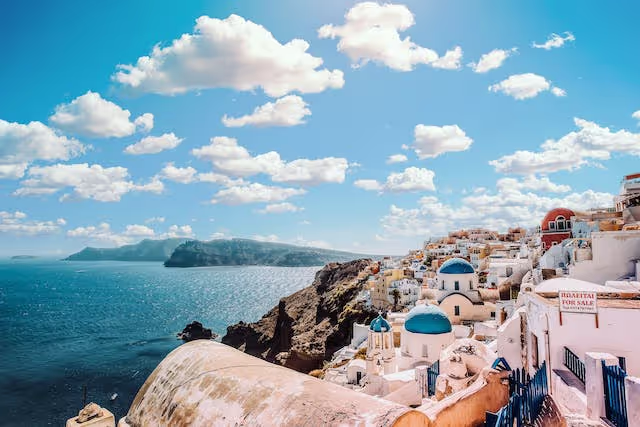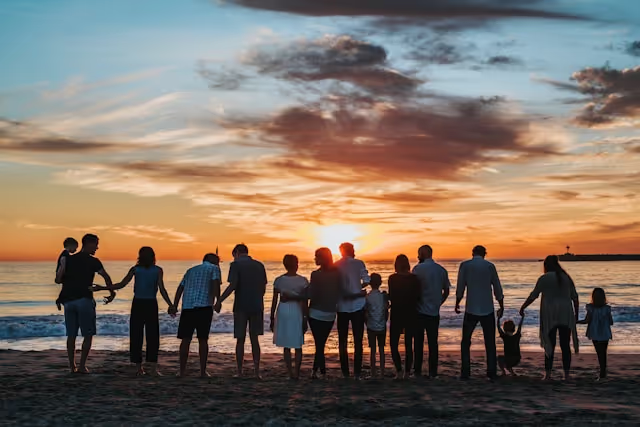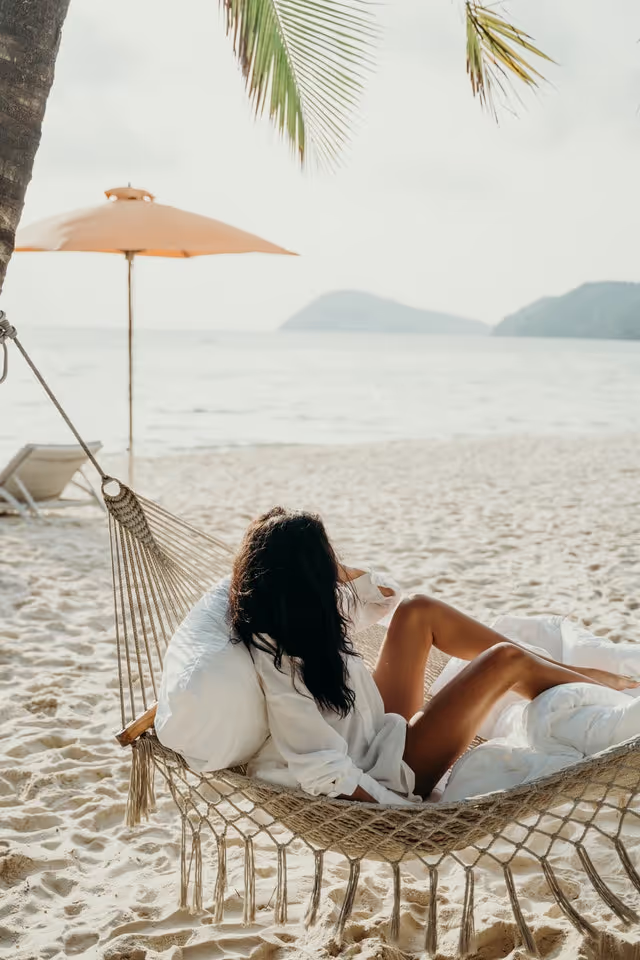
Blog
Unlock the World with Travel Hacks
7 global accommodation and flight hacks
Some say travel is the only thing that really makes you wealthier. While that sounds nice on paper, in practice you often need wealth to travel. But exploring the world doesn't need to cost the earth. With the right travel hacks, you can embark on incredible journeys without breaking the bank.
In this guide, we will show you how to unlock the world affordably, focusing on purchasing flights at the best prices and securing affordable accommodation. Whether you're a seasoned traveler or just getting started, these tips will help enrich your life without spending all the riches.
Flight Hacking Techniques
Unless you own a boat, it’s likely you’re going to need to fly out of New Zealand. No matter where you fly, your return tickets will make a decent dent in your wallet. By choosing the right time to travel and shopping around, you can start your overseas trip by saving hundreds of dollars before you’ve even got on your plane.
Travel Hack 1: Travel in the Off-Season and Pick the Day of the Week Wisely
When it comes to booking flights, timing is everything. Travelling during the off-season can be a game-changer when it comes to cutting costs. This is the time when popular destinations are less crowded, making both flights and accommodations more budget friendly. An off-season adventure can be a rewarding trade-off with fewer crowds and better prices.
If you have the flexibility to choose your travel dates, consider taking advantage of flying on the less popular days of the week. Tuesdays and Wednesdays are usually cheaper. Midweek flights often have more wallet-friendly price tags because fewer people opt for travel, resulting in a lesser demand for flights.
Shoulder Season
Shoulder season is the travel period between the peak (or high) season and off (or low) season. In New Zealand’s summer, peak season is late December and nearly all of January, when schoolkids are on holiday and all the best holiday spots are packed. So, if you are looking to travel domestically (within New Zealand), if you can travel before or after this time of year, you’ll pay a lot less for airfares or anything else. Even better, holiday spots shouldn’t be as crowded, too!
Travel Hack 2: Use Fare Comparison Tools and Set Fare Alerts
Fare comparison tools like Google Flights or Skyscanner allow you to explore various destinations and flexible travel dates to find the best deals. These tools compare prices across different airlines and booking platforms, helping you identify the most cost-effective options.
These sites also let you set up fare alerts which can be a game-changer. By receiving notifications when prices drop for your desired routes, you can strike while the iron is hot and secure your flight at the right moment.
Cheapest of all, if you fancy a trip but don’t care where, you can truly take advantage of the best deals. For example, on Skyscanner you can search “Everywhere” and specify what month you want to travel. This will give you every country in the world starting with the best-priced flights with your selected month.
If you have a country in mind, you can instead select the location and find Skyscanner will show you the cheapest month of the year to fly. Either way, with a few clicks you can save hundreds of dollars.
Flexible and Affordable Accommodation
What constitutes “the right accommodation” is different for everyone. We all have different preferences and needs. The key here is to choose the best value accommodation for you personally. When it comes to investing, we talk about an “investment profile”. The same concept can be used for your travel accommodation.
To understand your accommodation profile, ask yourself questions along the lines of:
- Are you going to be physically remaining in the accommodation a lot or will you be out exploring and sightseeing? If you want to tirelessly explore the city and eat every meal out in Barcelona, you might not want to bother splashing out at a fancy hotel. That’s because if you’re just going to sleep there at night, shower, then be straight out on the streets eating tapas and hitting the beach.
- Do you want to prepare meals at the accommodation?
- How long are you staying for?
- How safe is your destination, who are you travelling with, and how much of a priority is your safety? A young woman travelling alone may have different needs to say, a group of young men travelling together.
- How will you be traveling to and from your destination, and locally while you’re there? It’s often worth paying more for accommodation located near subways, trams, railway stations, and so on – especially in large urban centres or underdeveloped countries where what seems like a simple trip when you look at a map can turn into a time-consuming trek hindered by traffic, undeveloped infrastructure, or other issues!
- Do you have any accessibility or other needs?
- How much are you willing to pay for comfort and convenience?
Answering these questions will help direct you to the best accommodation to suit your needs.
Travel Hack 3: Be Open to Alternative Accommodation
Travelers’ accommodation is far more varied than just hotels. While hotels offer comfort and reliability, you can often find more affordable options that enhance your travel experience. Depending on your accommodation profile, think about these options and see if they would fit with your time overseas:
- Airbnbs: Renting a private room or an entire apartment through Airbnb can provide a home-away-from-home experience at a fraction of the cost of a hotel.
- Hostels: Hostels are budget friendly and perfect for solo travelers or those looking to meet fellow adventurers. Hostel World is a great site for this.
- Couchsurfing: Staying with locals through platforms like Couchsurfing offers a unique chance to immerse yourself in the local culture and save on accommodation costs.
- Home Swap: Own your own home? You have the option to home swap with someone else and save yourself money in doing so. You also get the benefit of living in (usually) a beautiful home. Home Exchange is a popular choice.
Travel Hack 4: Explore Beyond the City Limits
In major cities, it can be more cost-effective to stay outside the city and commute. Not only does this often result in better accommodation for less expense, but it also provides an opportunity to explore both the bustling city and a more relaxed off-the-beaten-path area. This is a great hack when staying around major cities as they usually have excellent public transportation systems, making it easy to travel to and from your accommodation, even at night.
Alternatively, it might suit you to pay a little more, but save yourself time and hassle by staying in a convenient inner-city location. This can maximise your holiday experience, as you’ll spend more time enjoying the sights, sounds, tastes, and experiences of your destination.
Travel Hack 5: Alternative Accommodation
Consider thinking outside the box when it comes to your travels. Camping in national parks can be an incredibly affordable way to connect with nature while saving on lodging. Additionally, platforms like Workaway allow you to volunteer in exchange for free accommodation and sometimes meals. These opportunities enable you to experience life like a local while travelling on a budget.
Travel Hack 6: Bring Your Own Food
If possible, prepare your own meals and take your own bottled water or drinks. If you’ve got a heavy travel schedule, you’ll probably need nutritious, light meals, to give you plenty of energy to explore and experience.
Avoid buying meals at the airport or in tourist areas, and never touch the hotel minibar. These seemingly small charges can add up fast.
Travel Hack 7: Pack Light
This tip depends on the season and destination.
Packing light has benefits well beyond just avoiding airline baggage fees. For starters, packing light means you can get around a lot easier. With a light suitcase or backpack, you're more agile, enabling you to navigate public transit rather than feel like you need to pay for a taxi or uber. You might also have less temptation to buy souvenirs as you won’t have as much space.
Bring clothes that you can wash easily in a sink. Look for items that dry quickly and pick clothes that you can mix and match. Default to basic items that go with pretty much any outfit, so you don't need to cram four pairs of shoes into your bag.
Bonus tips
Maximise Your Credit Card
Turn your everyday credit card spending directly into a flight overseas. With an Airpoints credit card, you can slash your travel expenses by using your points to help pay for your flight, and some cards can even give you free travel insurance.
As an Airpoints credit card holder, you'll earn Airpoints Dollars with each purchase you make. But a word of caution: If you're unsure about paying off your credit card balance in full and on time each month, it's best to avoid credit card use entirely. Interest charges can erase the benefits of earning Airpoints Dollars.
A good method for controlling credit card spending is to only use it for your essential purchases, like groceries, petrol and pay your household bills. That way you’ll know you’re not spending money you don't have, and you can put the points towards your travels.
Some credit cards offer free hotel night certificates, while others might offer airport lounge passes or even airport lounge memberships. These perks can quickly add up.
Airport and Airline Lounges
Airline or airport lounge membership can be worthwhile as a standalone purchase in many cases, especially if you’re travelling regularly or have a heavy transit schedule.
Food quality varies greatly, but you can usually expect light snacks like fruit, chips, and coffee. The fancier lounges provide entire buffet meals and open bars, which can offer substantial savings if you’re travelling enough and the membership means you avoid expensive airport meals.
Some lounges offer shower facilities, exercise rooms, good wi-fi, and massages. Get to the airport early to maximise the amenities and ensure the next leg of your trip gets off to a peaceful start.
Travel Insurance, A Must
While travel insurance might seem like an extra expense, it's crucial for protecting you and your belongings. It's especially important if you have pre-existing health conditions. As we said, some credit cards offer free travel insurance if the trip is purchased on the card, so make sure to explore this option when selecting your credit card. In case of theft, cancellations, accidents, or injury, travel insurance can save you a substantial amount of money and provide peace of mind.
Stay off the Beaten Path
Tourist-heavy locations tend to be overpriced, and in many cases, can be overrated. Instead, spend time around local people, and in areas others may not visit. You might find the most enjoyable part of your trip is deeply experiencing the culture, language, attractions, landscape, and foods of your destination – all of which can be diluted if you only frequent hotspots teeming with tourists. Not only will you save, but you’ll also see a whole different side of your destination.
Check for Refunds
Many countries will refund you value added taxes (“VAT”, in New Zealand we call this GST) paid on significant purchases. Do some research and you might find yourself with a nice payday on the last day of your trip. It’s common for there to be desks set up at the international departures area of major airports for this very purpose, so keep your receipts!
The Best Experiences Often Don’t Cost Money
When you finally return home, you might realise your best experiences didn’t cost the most.
Mindful of this, you might prioritise free experiences and sightseeing attractions over those with a fee. For example, tickets to San Francisco's de Young Museum cost about $15, but you can go to one of its coolest rooms, the Hamon Observation Tower, for free panoramic views of the city.
The Bottomline: Travel Doesn’t Need to Cost the World
Travel doesn’t need to cost the world and by travel hacking you can get by without draining your bank account. By spending a few hours finding cheap flights, exploring alternative accommodation, and maximising travel credit cards, you can take off on an unforgettable journey while keeping your wallet full. Watch out for mistakes that could blow your budget, and don’t skip travel insurance! It's the key to exploring the world safely and with confidence.
You may also like:

Mortgage Holidays Explained for NZ Homeowners

Estate Planning in NZ: Wills, Trusts and More


